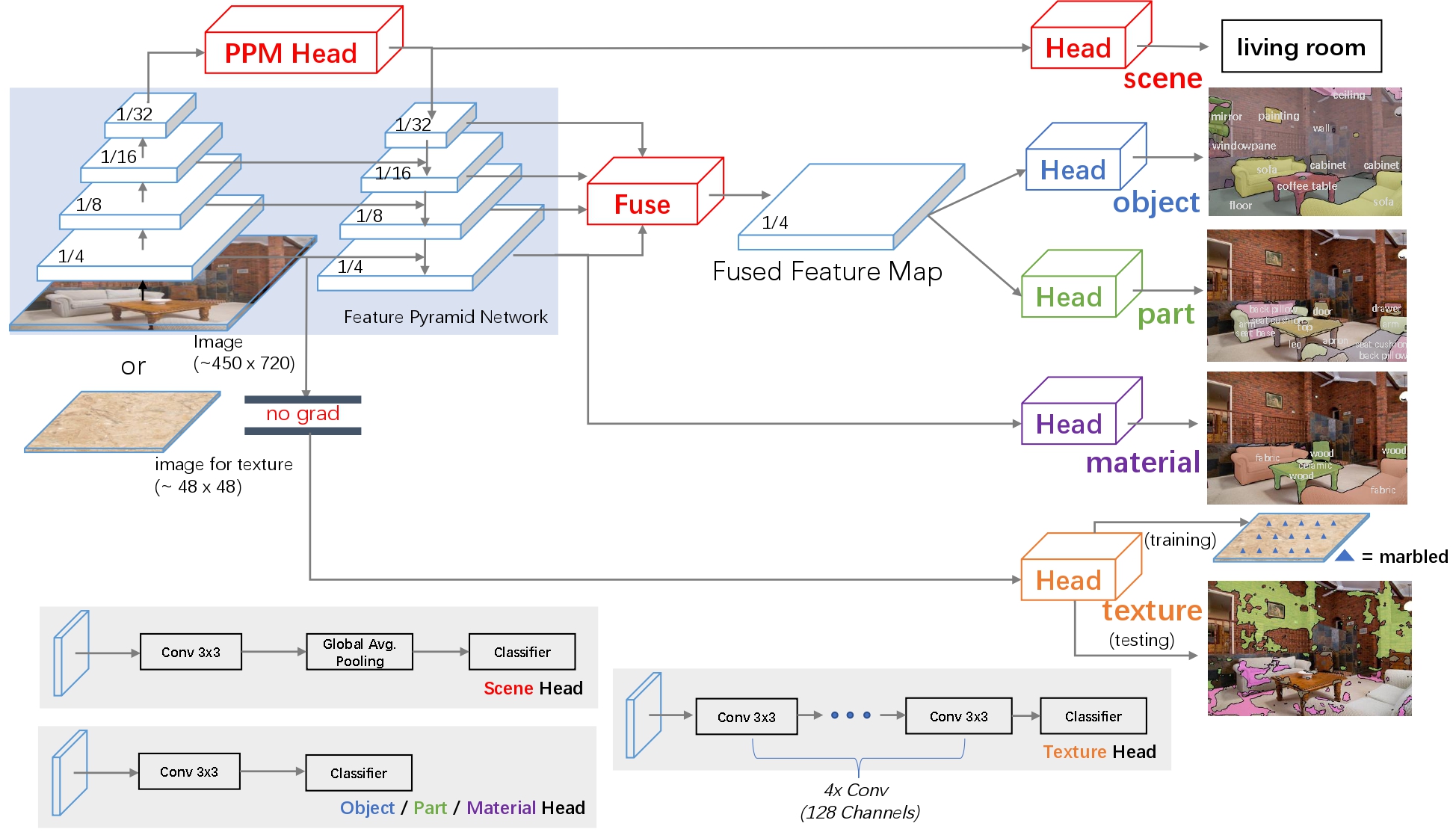| language: en | |
| license: mit | |
| tags: | |
| - vision | |
| - image-segmentation | |
| model_name: openmmlab/upernet-convnext-tiny | |
| # UperNet, ConvNeXt tiny-sized backbone | |
| UperNet framework for semantic segmentation, leveraging a ConvNeXt backbone. UperNet was introduced in the paper [Unified Perceptual Parsing for Scene Understanding](https://arxiv.org/abs/1807.10221) by Xiao et al. | |
| Combining UperNet with a ConvNeXt backbone was introduced in the paper [A ConvNet for the 2020s](https://arxiv.org/abs/2201.03545). | |
| Disclaimer: The team releasing UperNet + ConvNeXt did not write a model card for this model so this model card has been written by the Hugging Face team. | |
| ## Model description | |
| UperNet is a framework for semantic segmentation. It consists of several components, including a backbone, a Feature Pyramid Network (FPN) and a Pyramid Pooling Module (PPM). | |
| Any visual backbone can be plugged into the UperNet framework. The framework predicts a semantic label per pixel. | |
|  | |
| ## Intended uses & limitations | |
| You can use the raw model for semantic segmentation. See the [model hub](https://huggingface.co/models?search=openmmlab/upernet) to look for | |
| fine-tuned versions (with various backbones) on a task that interests you. | |
| ### How to use | |
| For code examples, we refer to the [documentation](https://huggingface.co/docs/transformers/main/en/model_doc/upernet#transformers.UperNetForSemanticSegmentation). | |